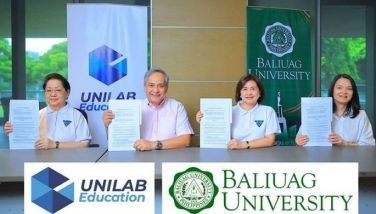Was Rizal wrong about the mother tongue?

Of all of Rizal’s timeless statements, none provokes the nationalist sentiment more than his adage: “Ang hindi marunong magmahal sa sariling wika, masahol pa sa hayop o malansang isda.” (He who knows not to love his own language, is worse than beasts and putrid fish.)
It was also the most confusing for me when Rizal, as a subject, was taught during my college. For how could one, I thought, who was fluent in 22 languages (plus dialects as many as there are Philippine provinces), suggest that we should be loyal to our own? Rizal also names Tagalog as the national language, equal to Latin, Spanish and English.
Rizal may have made a biblical reference to the Tower of Babylon where our angered God punished, yet gifted, people with different languages. In the case of the Philippines, too many languages indeed.
The most undeniable rationale, however, for Rizal’s regard for the mother tongue is that it is salient to the country’s identity. And to have and preserve that identity, the country must be free. This business of nationalism for our country would prove enduringly complex. Because it is not only a foreign power or foreign policy issue, but also a national vs regional issue.
It was easy for Rizal to rally Filipinos towards nationalism using the national tongue as a torch. But he seemed to have held back, careful not to offend sensitivities about regional languages – the kernel of our own national Babylon.
Regionalism is a matter of consequence in our country. It did take the garrote on the Gomburza priests in Bagumbayan for Filipinos to feel oneness in pain and shame. Freedom did little politically on regionalism, and we are still in need of a politician that would sacrifice the interest of their kababayans for the interest of the country.
Maybe we need this backdrop to shift from something almost unsolvable to something which potentially can be, because this issue is supposed to be apolitical. It is the use of the local dialect as the medium of instruction in schools during the very formative years of the student: from basic, and in some instances, even up to high school.
If this system of education was unofficial before, it had since earned support and legitimacy. The Department of Education (DepEd), we understand, conducted a study and determined that a “Mother Tongue-Based Multilingual Education” will help the education program. Based on the DepEd website, this program in 2016 mandates the use of the language that students are familiar with to allow them to grasp basic concepts more easily. Thus books and materials used would also be in the mother tongue.
Currently, DepEd uses 19 languages in this program: Tagalog, Kapampangan, Pangasinan, Iloko, Bikol, Ybanag, Sinugbuanong Binisaya, Hiligaynon, Waray, Bahasa Sug, Maguindanaoan, Maranao, Chavacano, Ivatan, Sambal, Akianon, Kinaray-a, Yakan and Sinurigaonon.
Different mother tongues are used respectively as a medium of instruction in all learning aspects. Students are also educated on their mother tongue in speaking, reading, and writing from Grades 1 to 3. Education in the Filipino language comes next, we understand, from Grade 2 to Grade 6. English is probably taught with more or less rigidity in high school.
With all due respect, I submit that this method needs to change, regardless of whether it creates more difficulty for the students and teachers in the beginning. The wakeup call came late in 2019, but it’s a wakeup call nonetheless. The Philippines ranked last among 79 countries in Reading comprehension (and for Science and Math as well), bested even by our neighbors in Southeast Asia in the United Nations Programme for International Students Assessment (PISA).
This result comes from a country that boasts itself as having English as its second language. What these tests show is that a large part of our student population, 15 years of age, can read English but not necessarily understand it. Grammar and sentence construction proficiency comes into play.
So what if we are poor in English? Data that our firm, PwC Philippines, further studied show that those countries that do well in PISA also enjoy a higher GDP rate per capita. Fact is, after school, business communications are in English. As an internationally used language, we use that to talk to all investors, and we file all our financial and government reports in English.
As one hands-on in our human capital, I have personally observed that if the English issue is not corrected in high school, the student will carry the deficiencies to the workplace. Lack of proficiency in English is a barrier to success, especially in a professional environment. Communication is key to delivering great ideas, crucial to leadership, and influencing change. The ability to communicate well deserves no handicap: from a laborer who needs to understand and fill up forms, to a professional who needs to express what he thinks in public.
The mother tongue program would do well to be tempered and adjusted because it would help the student and the nation more in the long run. A new vertical, such as a national association of English teachers, should be organized and funded because the trainors are the best place to start and also the best group to get ideas from.
The fireworks were subtle, the noise much less when we welcomed 2021, but there is nothing that lights our hopes more than a passionate resolve to improve. Here’s to those who went ahead, those who remain to fight on, and those, as a student would, who strive to learn again.
* * *
Alexander B. Cabrera is the chairman and senior partner of Isla Lipana & Co./PwC Philippines. He is the chairman of the Integrity Initiative, Inc. (II, Inc.), a non-profit organization that promotes common ethical and acceptable integrity standards. Email your comments and questions to aseasyasABC@ph.pwc.com. This content is for general information purposes only, and should not be used as a substitute for consultation with professional advisors.
- Latest
- Trending





























